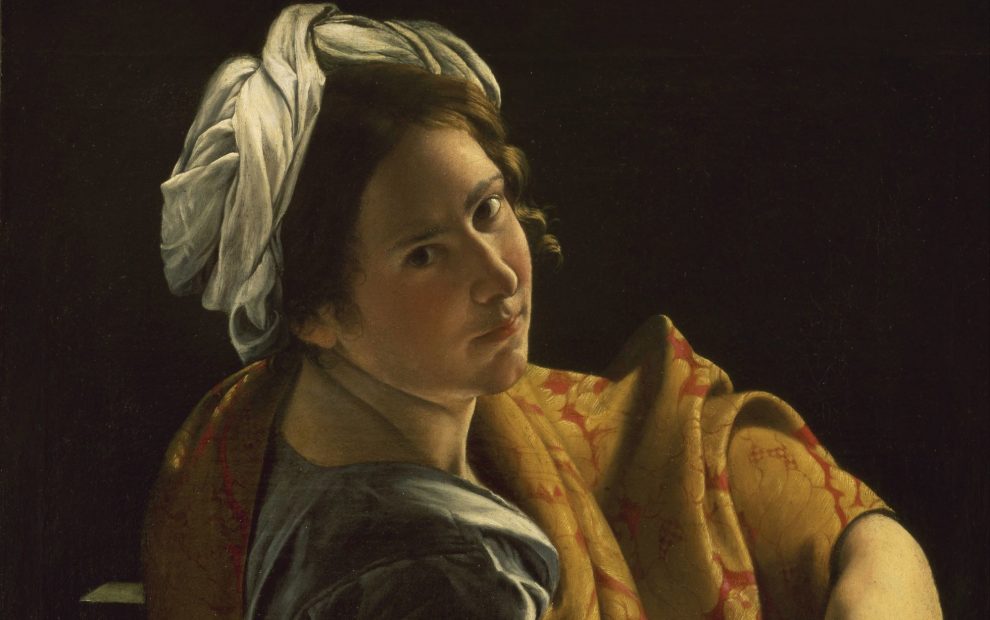First of all, let me address the elephant in the room: This is a Testaments column, but I am not Alice Camille. I know that, for many of our subscribers and readers, Alice is a trusted and beloved voice whose commentary on scripture and the liturgical calendar deepened their faith and inspired their reflection.
After more than 20 years writing every month without fail, Alice is transitioning into a well-earned retirement. She’ll still be writing occasionally for U.S. Catholic for a couple more years, but you’ll start to see some newer voices in this column as well.
I’ve worked with Alice for a decade now, and I’ve learned so much from her myself about how to be a better writer and interpreter of scripture. So it was with no mild amount of trepidation that I approached writing this column, the first Testaments in decades to be written by a new voice.
I have always admired the unique voice Alice brings to her writing, and I can admit that it’s taken me a while to find my own voice in both personal and professional settings.
When I was in first grade, my teacher—whom I adored—told me that I was so loud they could hear me at the pizza parlor down the road from my elementary school. Message received: I stopped yelling the answers in class and left the wild play to the boys. When I was a teenager, my younger siblings often called me bossy or nagging when I was left to babysit them or when I tried to corral them into getting ready to go at a certain time. And as an adult, I once had a male boss write me a stern email because he felt like my tone was inappropriate and unfriendly and that I must be mad at him. (I had stopped using exclamation points in my emails.)
Every woman I know has a story like this. We’re told we’re too much, too loud, too bossy. We soften our emails with exclamation points and emojis and words like “I think” or “I just wanted to check” to avoid sounding harsh or unlikeable. And it turns out this constant policing of our language and our tone is nothing new.
This month at Mass, we hear a parable about another woman who can be seen as “nagging.” A widow has suffered some indignity, had some crime done against her—what it is, we aren’t told, but we can assume this is more than a petty theft. She is determined to get justice.
However, the judge in her town “neither feared God nor had respect for people,” the author of Luke tells us Jesus said (18:2). Various translations describe the judge as “unjust” or “dishonest”: Either way, he is motivated only by his own self-interest, not by any concerns of justice or human dignity.
The widow refuses to let this fact stand in her way. She is so determined to gain justice, Luke says, that the judge is worried she might come and give him a black eye, according to some translations. (The New Revised Standard Version translates this passage in Luke 18:5 as “she may . . . wear me out by continually coming” while the Sunday lectionary gets a little more direct, with the judge worrying the widow may “finally come and strike me.”)
Finally, the judge gives in, and the widow receives justice. The nagging woman finally wins, right? Read one way, the parable seems almost a joke about the eternally scolding woman. I can almost picture a sharp older woman brandishing a wooden spoon, threatening to smack the judge if she doesn’t get her way. And that kind of misogynistic vision is easy to fall into when you think about how we typically interpret scripture.
In an essay in the book The Lost Coin: Parables of Women, Work and Wisdom (Sheffield Academic Press) on this parable, writer Mary Matthews suggests that most people look for God in Jesus’ parables. And, she argues, typically we’ll look to the male characters for God first. The author of Luke certainly aids this tendency, ending the parable with the following admonition from Jesus: “Listen to what the unjust judge says. And will not God grant justice to his chosen ones who cry to him day and night?”
But as easy as it is to poke fun at the widow for being persistent, what does making that joke say about God? That turns God into the dishonest judge, a deity who needs to be pestered and pestered in order to answer prayers. If humanity is a mawkish shrew of a woman, then God is an uninterested husband, tuning out the words of his wife or her requests for aid.
I could end the essay right here: There’s a solid point to be made that when we try to fit scripture or Jesus’ teachings into our human stereotypes, we end up twisting God into something unrecognizable. But I’m not sure that’s what Jesus was trying to communicate with this parable.
Instead, what happens if we flip that expected script and see God not in the judge, the one with all the power, but in the widow, the one who had absolutely zero agency in her world, who was often seen as property to be passed off to her closest living male relative? Doesn’t that fit more with what Jesus told his followers over and over again about who he was and what he had come to do?
If we read the story this way, God is the widow who refuses to give up, who uses the only power she has—her voice—to advocate for herself against the impersonal and uncaring judge and the entire legal system he represents.
Unlike God the dishonest judge, this is a God that is easy to recognize throughout the rest of scripture. After all, over and over again in the gospels, Jesus proclaims that he has come to “bring good news to the poor” and to “let the oppressed go free.” He repeatedly identifies himself with the hungry, the imprisoned, the voiceless, and others whom society ignores.
But interpreting the story this way, flipping the stereotypical script, tells us something important about how we are called to act for justice in the world as well. In an interview with U.S. Catholic, author and civil rights lawyer Gloria Browne-Marshall challenges the modern-day idea that change should be immediate—that people should attend a protest and see almost instant change. “A successful protester may not ever see the end result of their protest,” she says. “We each put our leaf, our twig, into the stream. And we look forward to someone downstream getting the benefit of our work.” She points to the fact that it took decades to get the eight-hour workday, more than 80 years for women to have the right to vote, and over 50 years between Stonewall and when Obergefell v. Hodges gave same-sex couples the right to marry.
As Browne-Marshall says, “The human spirit inside each and every one of us cries out for justice. . . . Every individual will eventually get to the point where enough is enough, where they have to speak up for their family, friends, community, or themselves.”
This is the tireless advocacy that the widow models. She knows that she is just one person. That she is often considered to have no power in her society. And yet she doesn’t give up. To read this parable seeing God as the widow is to recognize that persistence in the face of indifference is not weakness but rather divine strength. Being “bossy” or “nagging” or direct is not a character flaw; it is a reflection of God’s own persistence.
This article also appears in the October 2025 issue of U.S. Catholic (Vol. 90, No. 10, pages 47-49). Click here to subscribe to the magazine.
Image: Orazio Gentileschi, Portrait of a Young Woman as a Sibyl, 1620–1626, oil on canvas, Museum of Fine Arts, Houston















Add comment